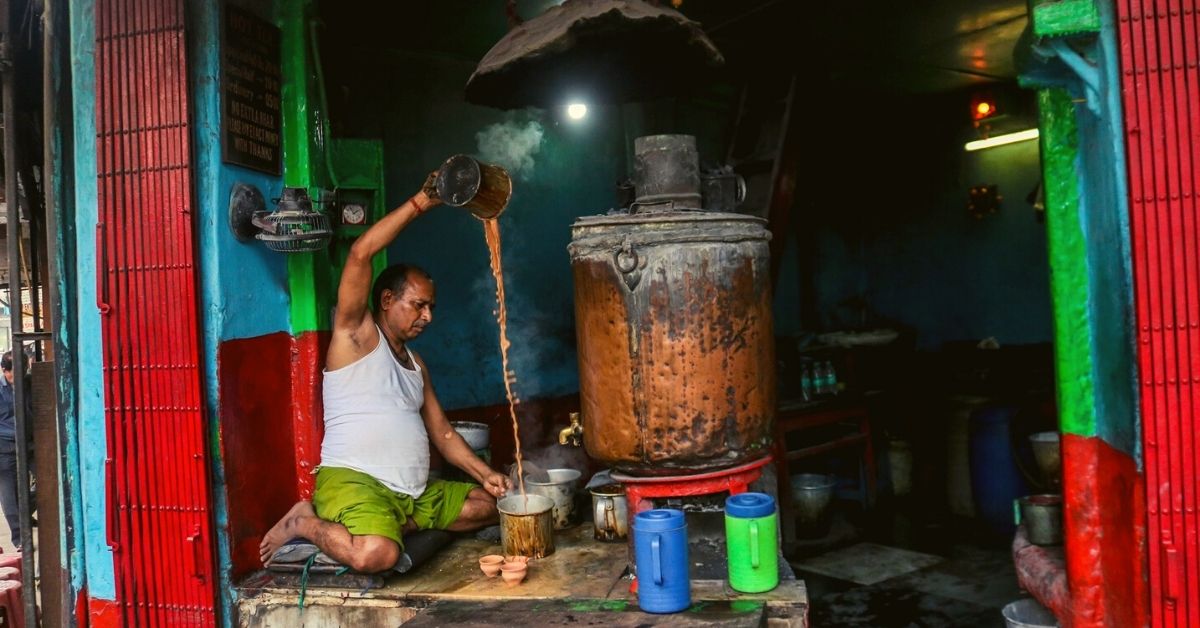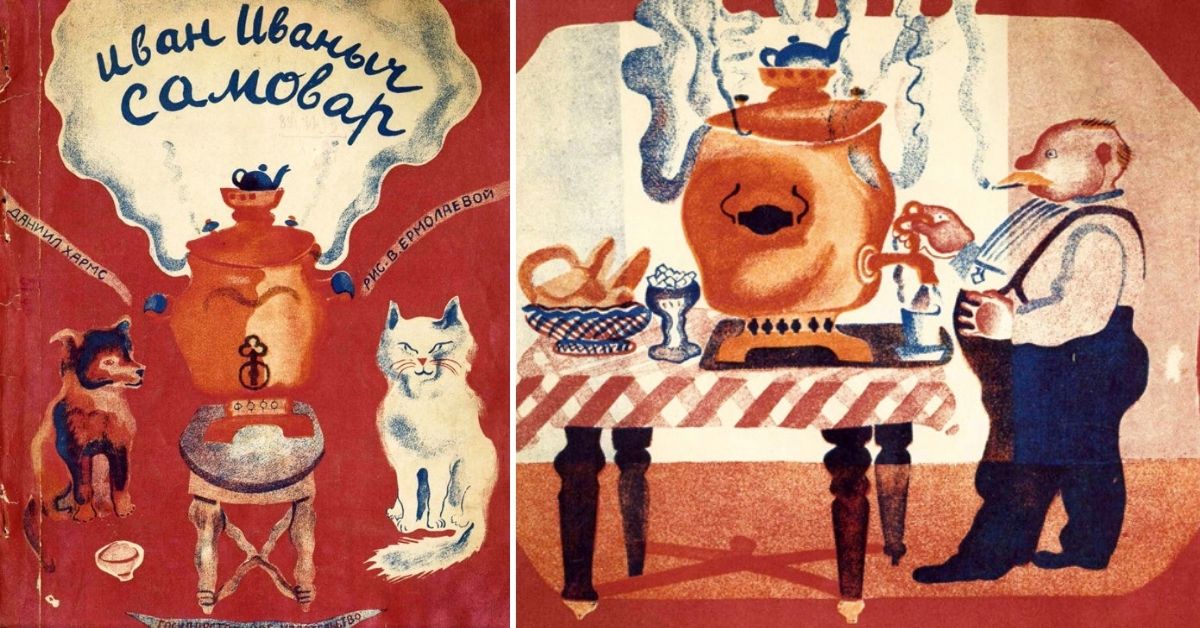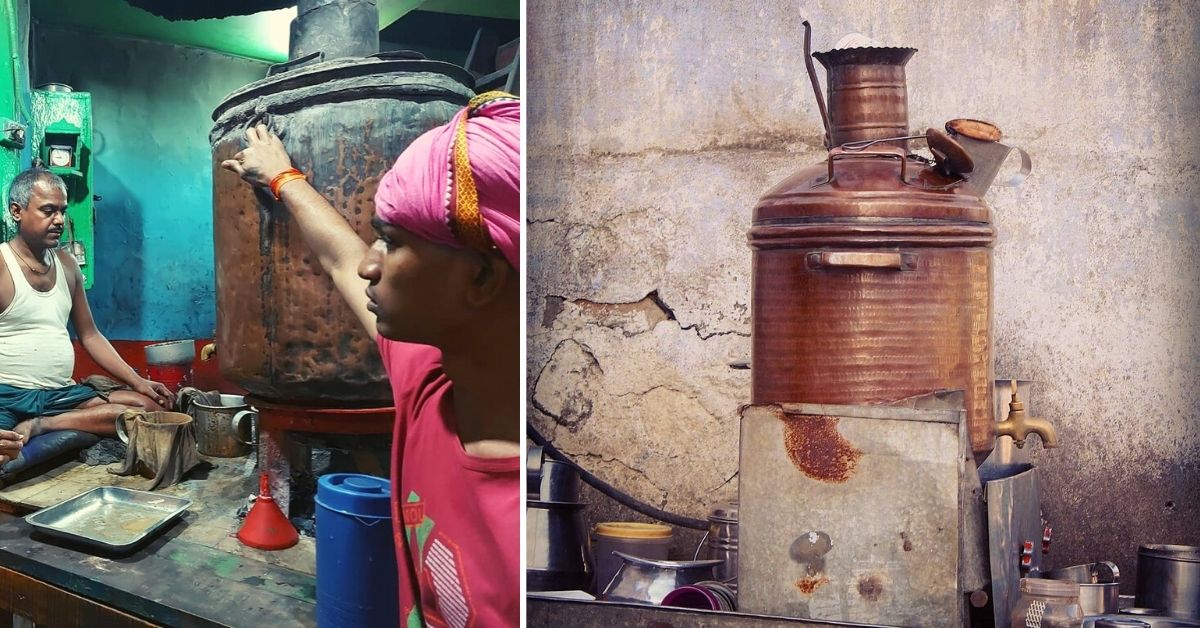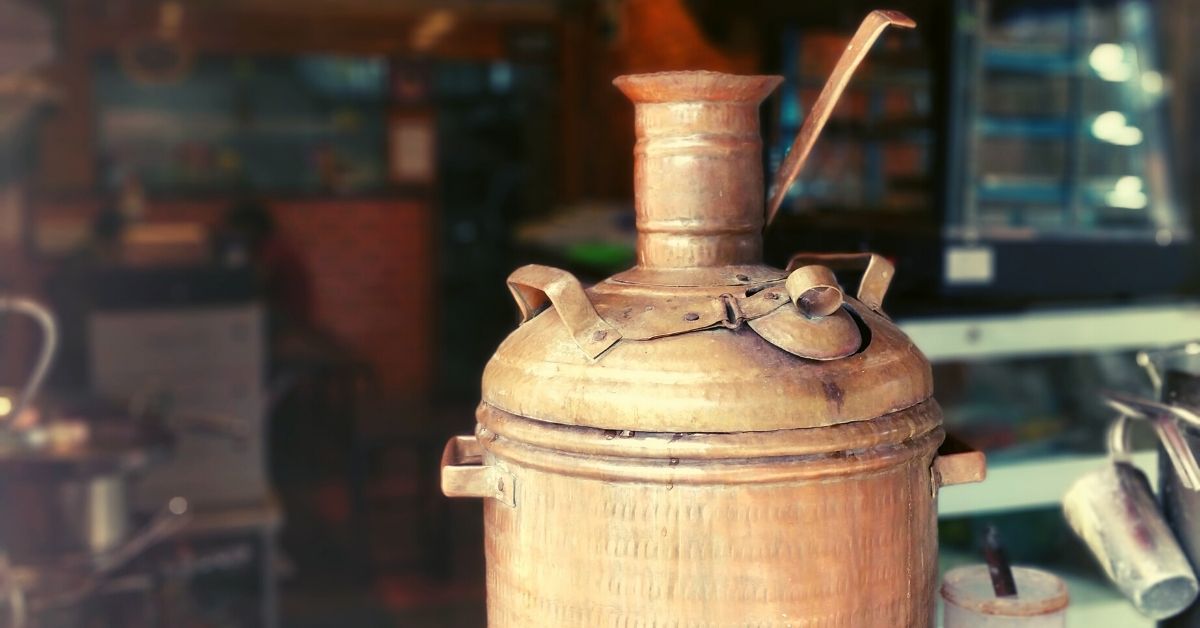This 100-Year-Old Shop Is The Last Kolkata Cafe To Still Brew Tea In Samovars
Samovar Tea Shop, run by 66-year-old Mahendra Singh Dhoni in Kolkata, is one of the view cafes in Bengal that still brews tea in the ancient giant copper kettle. We unravel its history and significance in the cultural landscape of the city.

A Monday morning in B.B.D.Bagh, Kolkata’s commercial hub, is a riot. Also known as office para, the area is a picture of chaos, capturing the traffic-clogged streets swarmed with people, either rushing to work or gulping down breakfast at the street-side eateries, which serve almost everything — a plate of rice and fish, bread omelette, chowmein, chilli chicken and fried rice, to name a few.
But all this hubbub comes to a pause at Mahendra Da’s Samovar Tea shop, not because it’s any less crowded, but because of how magical the tea served here is.
What makes it so special, you ask? It is the giant kettle-like metal vessel called samovar, which brews soul-stirring sustenance served in clay cups, all day long, to fuel the city’s workforce.
Tucked away in a corner of Bentinck Street, this 101-year-old tiny tea joint is unmissable, thanks to both an ever-present crowd of tea-lovers, as well as this 20-litre copper tank. One of the few surviving Samovar tea shops in the country, Mahendra Da’s store, locally known as ‘tanki chai shop’, is the only one in Kolkata that serves tea made in a samovar.
Song of Samovar

Traditionally used to heat and boil water for tea, this metal container, whose name literally means ‘self-boiler’, was invented in Russia in the 18th century.
But according to Russian author Daniil Kharms’ book ‘Ivan Ivanych Samovar’, a samovar is much more than just a copper boiler. It is believed to have a soul that sings. A rather romantic interpretation of its mechanism, this idea comes from the fact that the urn, when placed under firewood and charcoal, produces gentle gurgling sounds of water, slowly brewing the tea leaves.
A common Russian household utensil at the time, its ability to infuse tea with an unmatchable smoky flavour and fabled immunity-building properties because of copper, soon made samovar quite popular in several parts of Europe and the rest of the world, including India.
Today one can spot samovar tea shops in parts of South India and even Kashmir. In Bengal, however, it is a fading antique, painstakingly kept alive by the Samovar tea shop, run by 66-year-old Mahendra Singh Dhoni.
A namesake of the Indian cricketer, Mahendra is a second-generation samovar tea-seller, running this shop for the past 40 years. But this family-run shop has managed to hit a century with unwavering popularity, despite several competing tea establishments multiplying in the area. Talking about this sustained popularity, he tells the Indian Express, “The unique taste that comes from the water boiled in copper vessels cannot be recreated. So, this tea leaves an ever-lasting impression.”
Keeping the tradition alive

The tea shop was started by Juhuri Singh in 1920, a time when samovars were not rare in the city. He had just moved from the United Provinces to what was then Calcutta in search of a livelihood and decided to set up a tea shop in the city’s business district.
The idea to invest in the huge samovar was to be able to boil large quantities of water and keep it piping hot for hours. Over time, the popularity of these vessels faded in the city, mostly because of tedious maintenance, but Mahendra continues to stay true to tradition by brewing tea in the same vessel.
According to him, the samovar keeps the tea hot for several hours, without having to run on the gas the whole day, saving him both time and money. He adds that making tea in this vessel is quicker than that made in a kettle or other modern utensils.
Unlike other samovar tea shops in South India, which use gas stoves as a heat source, Mahendra likes to stick to tradition and make use of fire made with charcoal and wood that heats up a vertical tube inside the copper urn to slowly brew the tea leaves.

It is only while serving the tea that his version of samovar tea moves away from the original Russian tradition. Usually, samovar in Russia, as well as several other countries, is used to brew leaves to extract a rich concentrate of the tea liquor, which is later diluted with hot water and sweeteners. Mahendra, however, adds milk instead of more water, just before serving it in clay cups.
Serving more than a thousand cups a day, this tea-seller is doing his bit in keeping a unique brewing technique alive, hoping that future generations will follow.
Featured image source: Shashi Ghosh/Indian Express
Edited by Divya Sethu
If you found our stories insightful, informative, or even just enjoyable, we invite you to consider making a voluntary payment to support the work we do at The Better India. Your contribution helps us continue producing quality content that educates, inspires, and drives positive change.
Choose one of the payment options below for your contribution-
By paying for the stories you value, you directly contribute to sustaining our efforts focused on making a difference in the world. Together, let’s ensure that impactful stories continue to be told and shared, enriching lives and communities alike.
Thank you for your support. Here are some frequently asked questions you might find helpful to know why you are contributing?


This story made me
-
97
-
121
-
89
-
167











